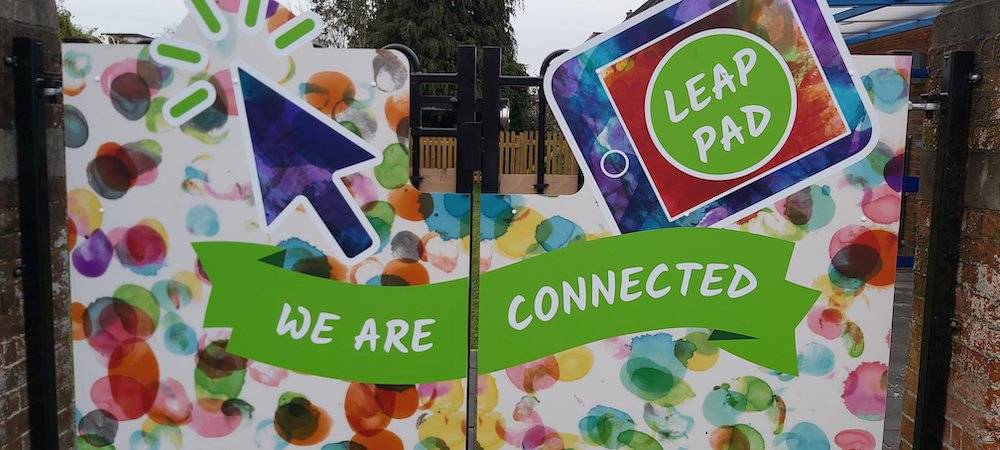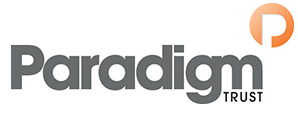The latest government figures show there are just under 1.5 million pupils in England with special educational needs – a rise of 77,000 from 2021. Currently, 4% of all pupils have an EHC plan, and the percentage of pupils with SEND but no EHC plan has increased to 12.6%.
These increases continue an upward trend which began in 2016, and starkly illustrate a greater need for SEND provision in England than ever before.
Since the 2014 Children and Families Act made it the duty of local authorities to provide for those with special educational needs, there has been a 200% increase in applications for EHCP plans in Suffolk. Paradigm Trust has worked in partnership with the County Council on the creation of Woodbridge Road Academy which brings much needed places for pupils with SEND. Currently there are 19 children on roll at a temporary site, with sixty places in total available when the new building is opened in September 2023.

This specialist SEND school caters for pupils in Key Stages 2-4 with communication and interaction needs. By providing a highly structured and predictable learning environment, pupils feel safe and are able to learn and thrive.
Children are taught in classes of around eight, by a teacher and at least one teaching assistant. This allows for plenty of adult support, and gives the flexibility to adapt lessons to the individual needs of the pupils. It also minimises distractions, so students can be more focused on their learning, leading to greater success.
The curriculum used at Woodbridge Road Academy is adapted from the mainstream curriculum used across Paradigm Trust, with alterations made to meet the individual needs of pupils so they can access the curriculum. In addition, pupils are explicitly taught social communication, emotional regulation and life skills, alongside them being embedded in other curriculum areas.
Outstanding special needs provision has been at the heart of Paradigm Trust since it was established. The Trust employs a pragmatic, integrated and community focused approach to SEND, and prides itself on ensuring all pupils have every opportunity to meet their potential, from Nursery through to Year 11. Paradigm Trust values of Integrity and Community reflect a genuine commitment to inclusion for all pupils, and teachers work to understand the strengths and needs of every child. Using this philosophy, specialist provision for SEN is offered alongside mainstream settings in both London and Ipswich.

Both the Trust’s Ipswich primary school academies, Piper’s Vale and Murrayfield, have SEN units. The unit at Piper’s Vale Primary Academy focuses on Reception and Key Stage 1 pupils who require support for autism and challenges with sensory processing, while the specialist unit at Murrayfield Primary Academy is for Key Stage 2 children who need additional support with communication and interaction to make expected progress.
Both units offer pupils the benefit of learning in smaller groups while giving them the freedom to move fluidly between specialist and mainstream school environments, acknowledging all the social benefits that brings. Pupils in these units are integrated into mainstream school between 40 to 50% of the time. This means that, across the two primary schools in Ipswich, they can support 30 children with significant special needs and can see pupils making huge progress. The vast majority of pupils with special needs access the mainstream curriculum within the classroom, delivered by dedicated teaching and support staff.
In London, the progress of children with hearing difficulties has significantly accelerated through the Deaf Support Base at Culloden Primary Academy in Tower Hamlets. Here, many deaf pupils achieve mainstream results in line with their hearing peers. The staff at the Support Base includes both qualified and trainee Teachers of the Deaf, and together they are able to support any pupil with moderate to full hearing loss.
The school adopts a total communication policy approach using Sign Supported English, which is based on British Sign Language (BSL), and works closely with specialist outreach professions such as speech and language therapists to achieve the best results. This was recognised by OFSTED when they awarded it Outstanding School status.
To achieve best practice, our SEND leads have access to a network of specialists with different expertise. All teachers and support staff are trained in SEND and our curriculum is constantly updated to ensure it is as inclusive as possible.
At Paradigm, our substantial, long-term commitment to developing this significant level of special education needs provision is bringing widespread benefits to the Trust, ensuring we continuously look to improve our practices, and place inclusivity at the heart of our ethos.
Most crucially however, we believe our pragmatic, integrated and inclusive approach to SEND provision is the best way to offer value to the communities we serve. By encouraging adults and children with a wide range of needs to work and play together, we can promote tolerance and understanding. Attitudes towards SEND in society, including as reflected through the media, have dramatically improved over the last decade. Children with special needs are supported from birth into adulthood, however there can still be limited understanding of the kind of provision that is best suited to meet such a broad plethora of needs.

Parents/carers want the best for their children and we are committed to ensuring children and young people do not become marginalised or segmented by society. Children with complex SEND needs too often end up outside mainstream education, despite parents/carers and the children themselves having a strong preference for effective inclusion. At Paradigm, every child matters, and the importance of having the right provision at the right time in a child’s school journey cannot be overstated. The Trust is proud to work together with families on a holistic approach to overcome challenges on an individual and profoundly human level.
Significant strides forward are currently being taken to ensure evidence-informed practice has a positive impact on provision for pupils with additional needs, in both mainstream and specialist teaching environments. We are proud to be playing a part in leading this process in, and for the benefit of, our communities.
